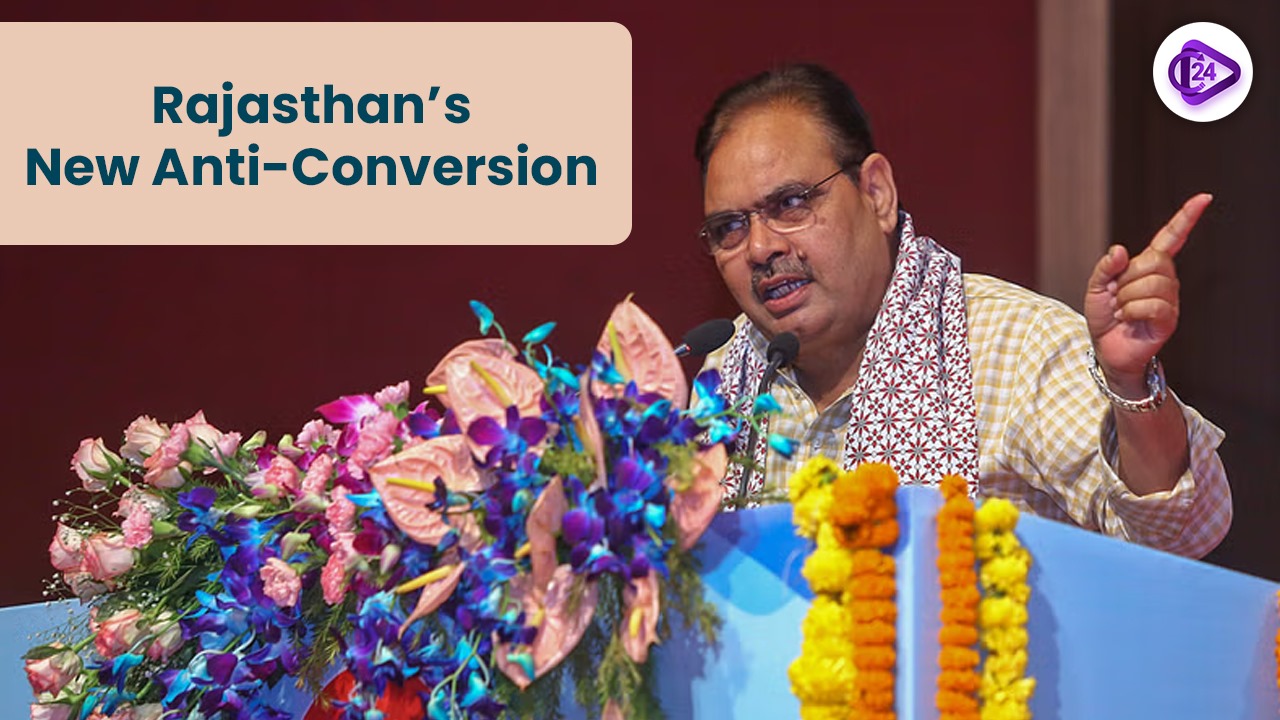
The Rajasthan Prohibition of Unlawful Conversion of Religion Bill establishes new extensive measures through which Rajasthan seeks to stop both compelling and deceitful religious conversions. The proposed penalties under the law include imprisonment that can reach 10 years and all offenses are marked as non-bailable and cognizable. The people who organize religious conversions must prove through evidence that they used neither physical force nor deceitful methods nor deceptive means during the conversion process. The DM must receive advance notification and declaration documents from those performing voluntary conversions or the law will impose penalties on defaulting parties. The legislation intensifies legal consequences for conversion cases involving minors, women, members of the SC/ST castes as well as mass converts and convicts who have undergone multiple conversions.
Key Provisions of the Rajasthan’s New Anti-Conversion:
-
Cognizable and Non-Bailable Offences
-
All offences related to conversion hold cognizable status according to the law enabling police arrests to occur without warrants based on their suspicion about ongoing violations. The included provision permits police to take immediate action against unlawful conversions.
-
All violations of unlawful religious conversion practice fall into the category of non-bailable offenses such that defendants cannot obtain bail authorization easily. Being detained in custody becomes necessary until the trial process is completed.
-
-
Punishment and Penalties
-
General Violations: 1-5 years in jail, fine of Rs 15,000.
-
Vulnerable Groups (Minors, Women, SC/ST): 2-10 years in jail, fine of Rs 25,000.
-
Mass Conversions: 3-10 years in jail, a fine of Rs 50,000.
-
Repeat Offenders: Double the penalty for subsequent violations.
-
Failure to Follow Notice Procedures: Up to 3 years in jail, fine of Rs 10,000.
-
Failure to Give Advance Notice for Ceremony: Up to 5 years in jail, fine of Rs 25,000.
-
-
Burden of Proof on the Person Facilitating Conversion
-
The responsibility to prove conversion lies with the converter along with their supporting group.
-
The court demands evidence showing that the conversion happened without coercion or fraud and unlawful influence together with the absence of allurement or marriage purpose that focused on unlawful religious conversion.
-
This section of the law creates a system to verify that people who volunteer for conversions experience genuine choices without intimidation or deception.
-
-
Mandatory Declaration for Voluntary Conversions
-
A mandatory exhaustive declaration needs to be submitted to the District Magistrate (DM) 60 days prior to any conversion by those who choose to convert voluntarily. The submitted declaration requires essential information about the converting person including name identity along with their original religious transformation as well as details regarding time and location of conversion.
-
The conversion declaration undergoes public display for 60 days to allow individuals to submit their complaints that authorities will investigate.
-
-
Process for Conversion and Legal Scrutiny
-
The conversion process includes declaring conversion intentions with local government authorities at least 60days in advance
-
After receiving a conversion notice the Additional DM rank or higher officer will begin an inquiry to determine the genuine intent and valid reasons for the conversion. The police will investigate to validate both the lack of coercion and the absence of unlawful motives.
-
Once the conversion process ends the person must verify the DM through a written declaration within 60 days. A confirmation notice must be displayed by the DM until the conversion process receives official verification. Personnel must present themselves before the DM to testify about the actual conversion.
-
-
Protection of Vulnerable Communities
-
The proposed law intends to defend marginalized communities together with aboriginal and vulnerable minority groups (SC/ST) against coercive or deceitful religious conversion procedures. The proposed law exists to stop coercive religious conversions that take advantage of defenseless populations.
-
A separate examination of "Love Jihad" exists in the bill because it targets suspected marriages that serve only to convert individuals through unlawful means. The bill declares these conversions void.
-
-
Empowering Relatives to Lodge FIRs
-
Family members who hold blood relationships with the convert have the authority to submit an FIR to law enforcement when they notice unlawful religious conversion. Relatives obtain authorization to file legal complaints when there is evidence that conversion has been performed through coercion or it represents fraudulent conduct.
-
-
Mass Conversions
-
Magisterial Rule for Unlawful Conversion Events: The law mandates high fines and prolonged imprisonment against any group performing mass conversion activities.
-
Reasons to implement the Anti-Conversion Law in Rajasthan:
-
The government seeks to protect vulnerable communities such as tribal groups along with women and people from SC/ST backgrounds from acceptance into different religions through forced methods and fraudulent means.
-
The law should address "Love Jihad" to stop marriages between religious members that serve as illegal religious conversion pretenses.
-
The law protects religious freedom by verifying that people convert voluntarily without any use of deceitful methods or incentives.
-
Social harmony protection acts as a goal that avoids mass conversions to preserve public safety.
-
Wider implementation of legal review procedures should establish if all conversion cases meet the requirements of voluntary participation.
Relevance of Rajasthan's Anti-Conversion Law
-
Addressing Concerns of Forced Conversions: The law provides essential protection to prevent forced or fraudulent conversions because it protects specifically vulnerable groups including tribals and women. A safeguard law exists in areas where coercion or undue influence has led to religious conversions since it protects people from exploitation.
-
Social and Cultural Context: Diverse Indian society experiences tensions regarding religious conversions, particularly during incidents of lay marriages between different communities and large-scale conversion events. The law’s provisions against forced conversions along with its handling of “love jihad” concerns maintain relevance to active social discussions taking place in areas experiencing religious conversion-related community disturbances.
-
Strengthening Religious Freedom: The legislation tries to defend people from deceptive conversion methods while some critics claim the restrictions may cross borders into voluntary conversion bans. This set of regulations about advance notice together with declarations and investigations presents a barrier to exercising religious freedom rights. The law provides an equilibrium between individual freedom rights and the objective of protecting anyone from being exploited.
-
Rising Conversion-Related Controversies: The law assumes relevance within Rajasthan due to rising controversy about religious conversions since this state faces political backing for measures targeting conversions. Sunila Abrol mentions that this legislation aims to minimize religious community distrust when viewed as an answer to the increased suspicions about deceptive conversion activities.
-
Legal Precedent Set by Other States: Rajasthan has become one of several Indian states such as Uttar Pradesh, Madhya Pradesh, and Gujarat that have adopted anti-conversion laws. The laws establish religious uniformity in areas experiencing intense religious conversion conflicts. The law follows a national trend that supports the wider regional discussion about religious identity together with conversion practices.
-
Balancing Individual Rights with Societal Concerns: The legislation exists for maintaining public order while safeguarding individual religious freedom yet preventing cases of fraud.
-
There are worries about utilizing this law to limit individual liberties and worship independence since India exists as a country containing religious diversity and religious freedom stands as a fundamental value.
-
Political and Public Sentiment: The enacted law obtains support from numerous individuals due to their concerns regarding involuntary conversion practices and their view of spiritual conversions as cultural intrusions. The law fulfills the political objectives of the ruling government by protecting traditional cultural traditions alongside responding to popular public sentiments from certain segments of society.
Challenges of Rajasthan’s New Anti-Conversion Law:
-
Potential Violation of Fundamental Rights: The constitutional guarantee of freedom of religion through the Indian Constitution seems to contradict this new anti-conversion legislation. According to criticism, the legislation may limit the constitutional right of practicing and spreading religion through voluntary conversion choices.
-
The burden of Proof on the Convertor: The person who helps with conversions must demonstrate to legal authorities that no inducement, deceitful means, or pressure was used during the conversion process. Law enforcement units might encounter difficulties when attempting to show conversion motivations because subjectively evaluating those motives represents a challenging task.
-
Impact on Voluntary Conversions: The procedural mandates which need a 60-day public notice together with declaration requirements could increase the difficulties in executing voluntary conversion processes. Such restrictions might slow down people who want to freely change their religion because they must deal with rigorous observations and regulatory limitations.
-
Risk of Misuse and Harassment: The legislation provides authority to relatives and family members to file formal complaints. The provision could enable family members to misuse the system to harass people who convert genuinely. The law enables relatives to intervene with complaints when voluntary conversions gain disapproval from family members. This applies particularly when family members refuse to accept the change of religion quietly.
-
Enforcement and Practical Implementation: It is challenging to follow the procedural requirements set by the law because they include advance notices together with police inquiries. Local authorities risk implementation challenges due to detailed documentation requirements and multiple verification steps.
-
Potential for Social Divisions: Social conflicts may intensify due to this law which exists in multi-religious contexts. Social tension can escalate because of both the "love jihad" legal focus and conversion restrictions which create suspicion between religious communities.
-
Vague Definitions: The phrase "allurement" contains multiple elements that authorities need to define since it encompasses various financial incentives along with employment offers. The law contains ambiguous language regarding "allurement" which creates space for erratic enforcement and conflicting interpretations of acceptable inducements across various situations.
-
Challenge in Proving Coercion or Fraud: The legal validation of forced or deceptive religious conversion stands as a challenging task especially when the events occur during personal conversions. The lack of a standardized definition regarding the extent of influence required for unlawful conversion purposes creates difficulties for legal substantiation.
Constitutional Provisions:
-
Article 25 - Right to Freedom of Religion
-
Article 25 of the Indian Constitution provides all residents the right to practice their chosen religion together with the freedom to confess religion and pass religious beliefs on to others. As an essential right of the Indian Constitution, this freedom allows every citizen to choose their religious path without external interference.
-
Connection with the law: The Rajasthan Anti-Conversion Law stands in contradiction to Article 25 because this Constitutional right gives freedom to practice religion. The intended safety aim of the law to protect against forced conversions creates procedural obligations that potentially restrict people from making free religious choices, particularly through the requirement of mandatory declarations and notices.
-
-
-
Article 26 - Freedom to Manage Religious Affairs
-
Under Article 26 religious denominations hold the authority to handle their organizational matters including the capability to establish and operate religious and charitable institutions.
-
Connection with the law: Religious institutions might face legal limitations through laws that establish restrictions on their conversion procedures as these regulations could breach religious freedom principles through coercive or deceptive behavior.
-
-
-
Article 14 - Right to Equality
-
Article 14 guarantees all citizens have equal treatment before the law together with equal law protection which prohibits unfair treatment against individuals or groups.
-
Connection with the law: A discriminatory impact against particular religious groups under the anti-conversion law would challenge Article 14 protections concerning both discrimination and unequal treatment of converting individuals.
-
-
-
Article 25(2)(a) - Public Order, Morality, and Health
-
Article 25(2)(a) enables the government to limit religious practices which represent threats to public order and morality or health standards.
-
Connection with the law: The Rajasthan Anti-Conversion Law finds its justification under this provision because it establishes regulations to prevent public disorders or moral threats arising from conversions through coercive or deceitful means or undue pressure. The government claims the law exists mainly to keep public order by stopping the social unrest triggered by contested conversion activities.
-
-
-
Article 21 - Protection of Life and Personal Liberty
-
Under Article 21 India provides its citizens with two essential rights: the protection of life and personal liberty as well as dignity in living.
-
Connection with the law: The supporters of the anti-conversion law claim it protects persons' human dignity along with their liberties because it stops coerced conversions. The advocacy of regulation on voluntary conversion encounters criticism because it potentially restricts individual religious freedom to choose their faith without external control.
-
-
Conclusion
The Rajasthan Anti-Conversion Law works to protect both religious freedom rights as well as safeguard vulnerable communities from coercion or fraud. The legislation to stop unlawful religious conversions produces constitutional inquiries about both the freedom to exercise religion (Article 25 protection) and whether its strict provisions could limit personal freedoms. The requirements for procedural scrutiny together with the proof burden may encroach upon the basic personal liberties of the people involved in conversion events. The law's constitutional validity will be analyzed in the legislative process primarily regarding how it affects fundamental rights established in the Constitution.



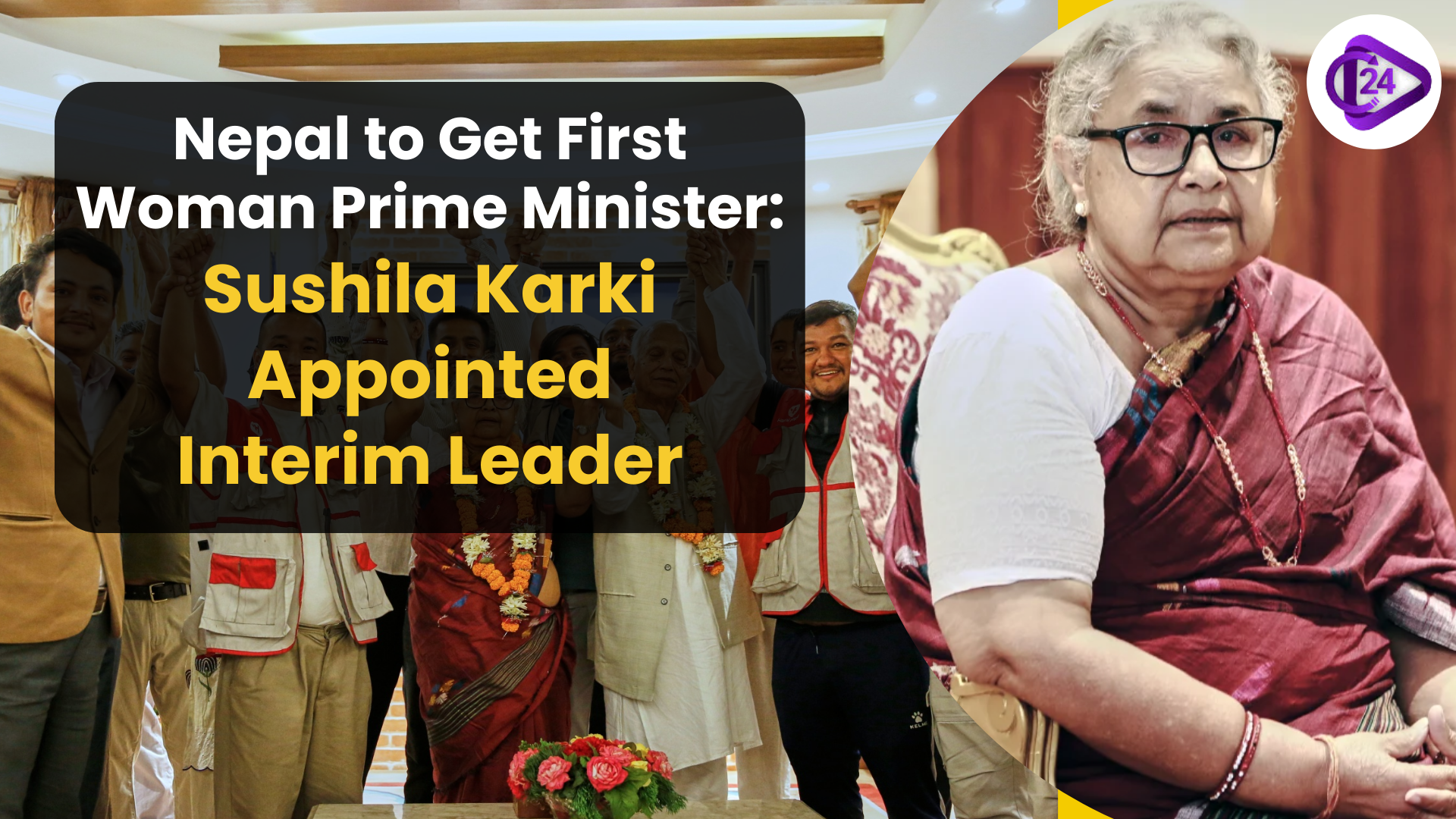 Nepal to Get First Woman Prime Minister: Sushila Karki Appointed Interim Leader
Nepal to Get First Woman Prime Minister: Sushila Karki Appointed Interim Leader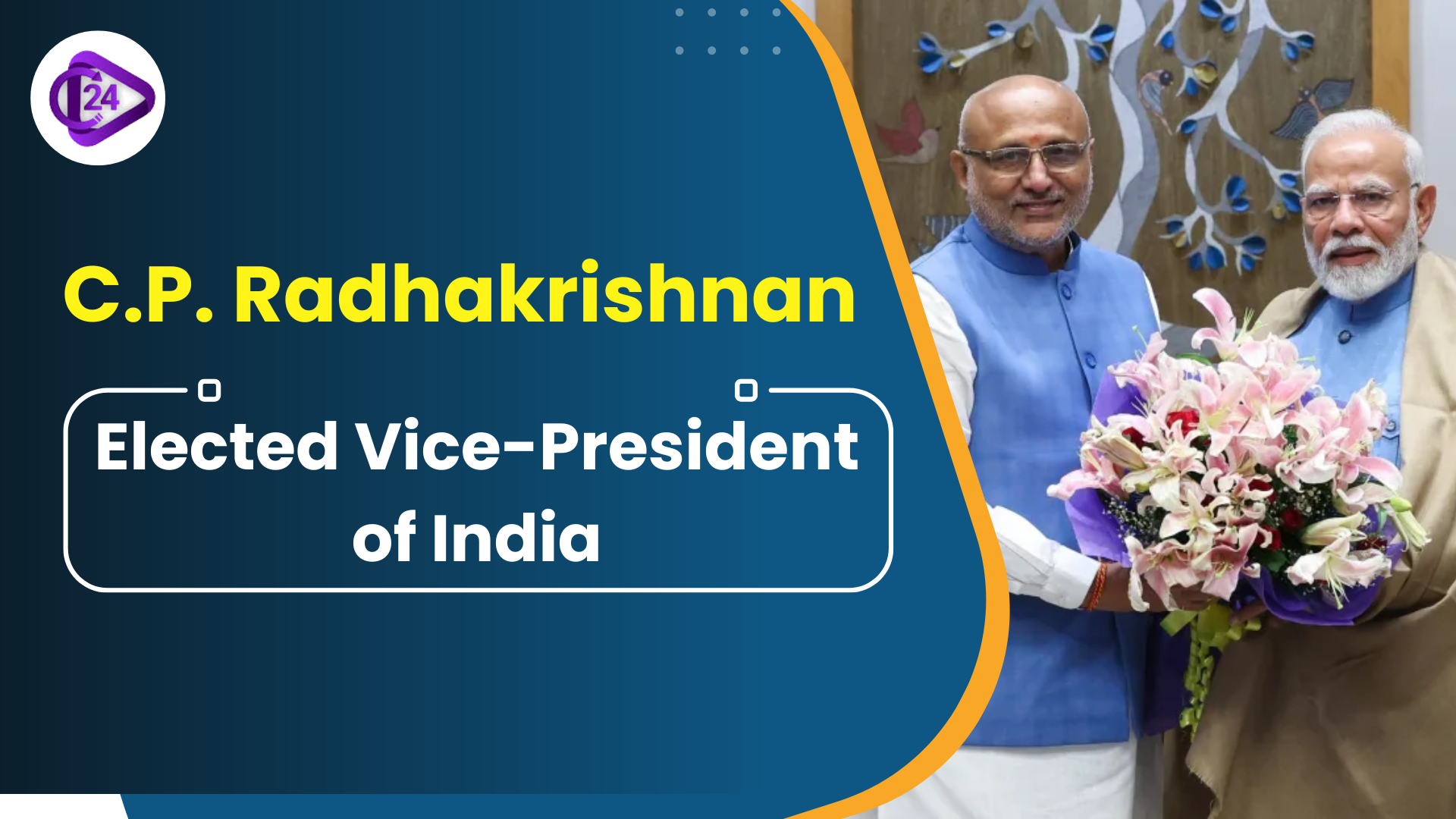 C.P. Radhakrishnan Elected Vice-President of India
C.P. Radhakrishnan Elected Vice-President of India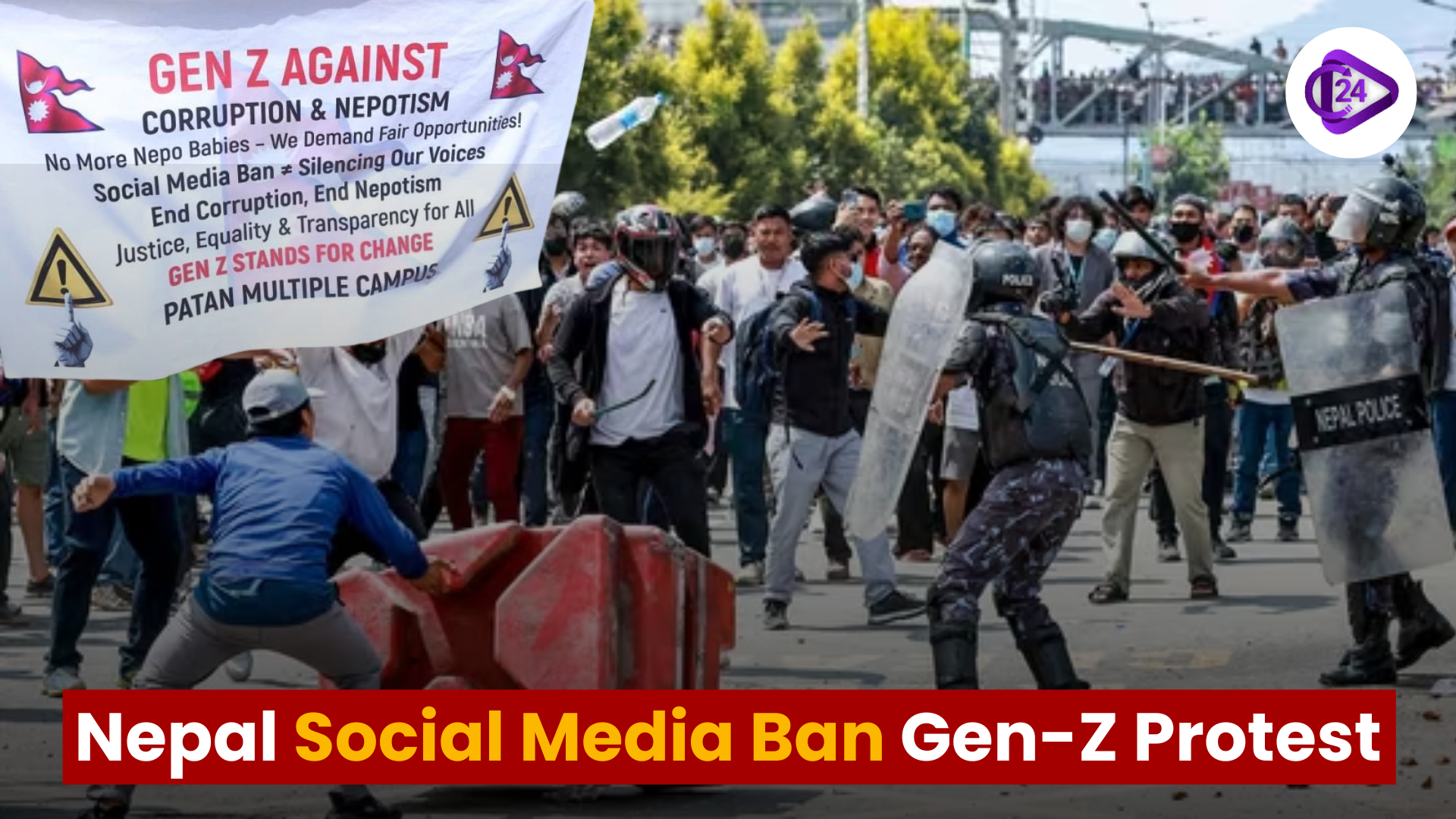 Nepal Social Media Ban Triggers Mass Gen-Z Protests
Nepal Social Media Ban Triggers Mass Gen-Z Protests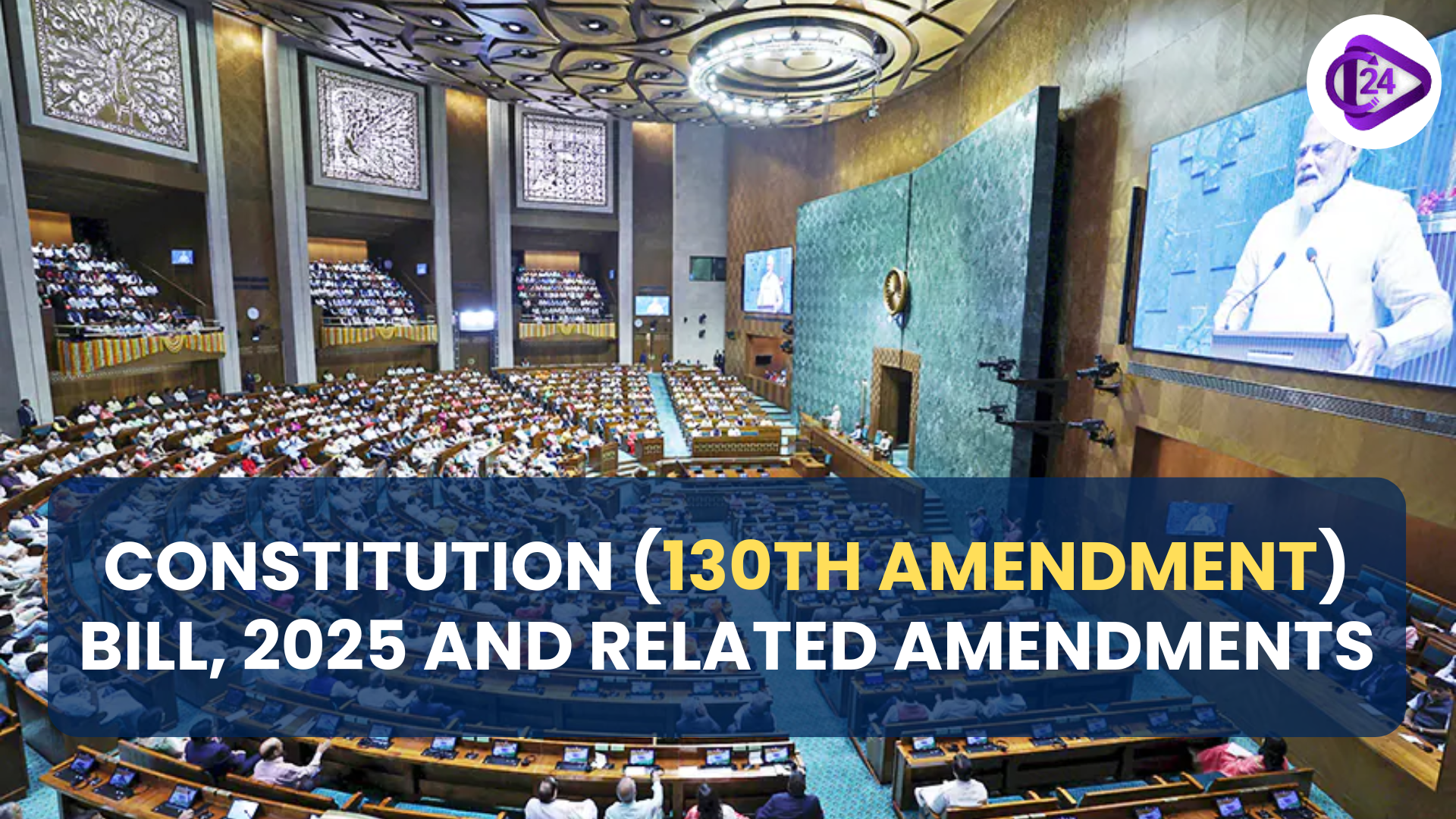 Constitution (130th Amendment) Bill, 2025 and Related Legislations
Constitution (130th Amendment) Bill, 2025 and Related Legislations The Role of Preventive Health Screenings in Achieving a Healthier India
The Role of Preventive Health Screenings in Achieving a Healthier India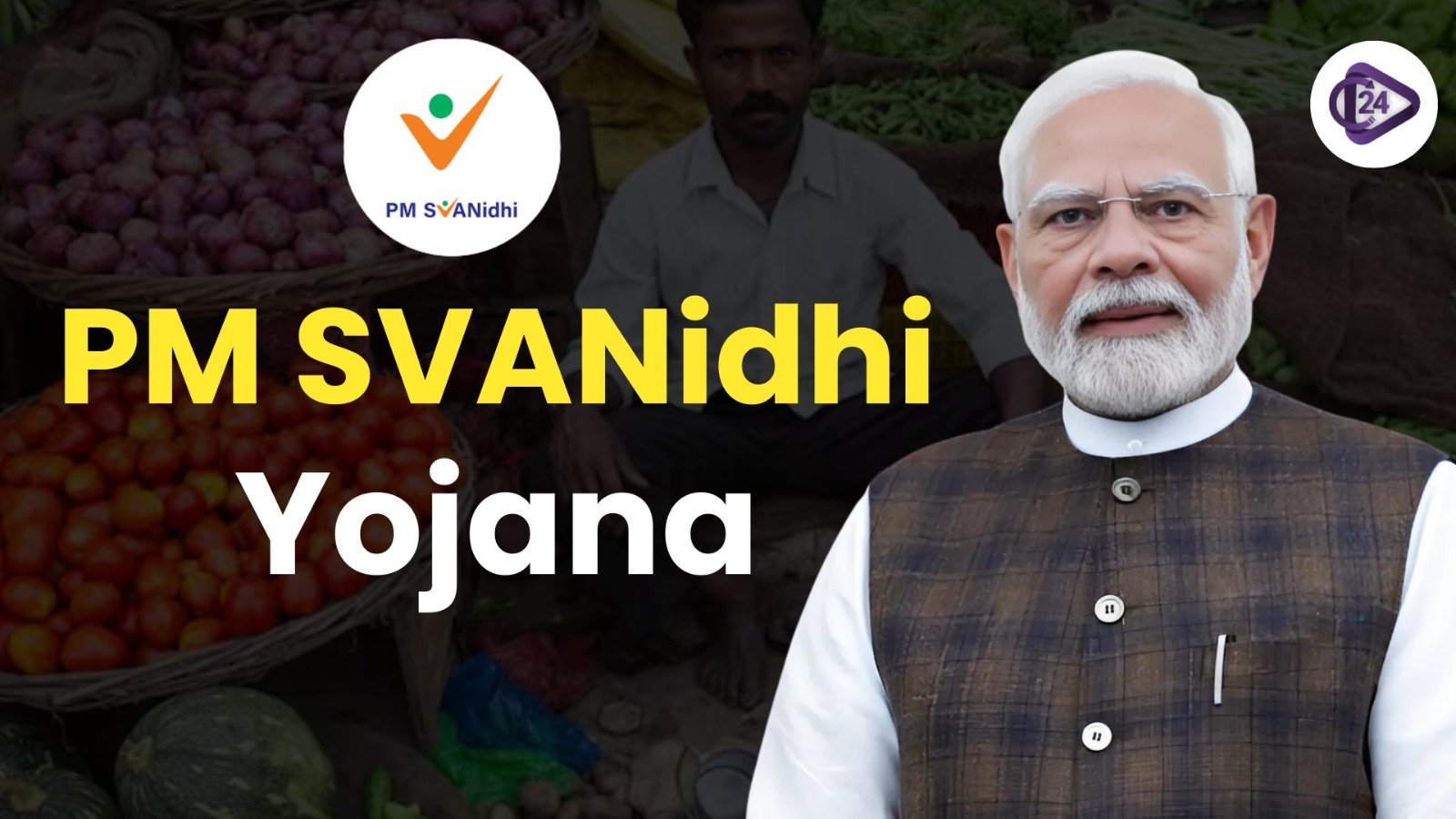 PM SVANidhi Yojana: Empowering Street Vendors with Financial Inclusion
PM SVANidhi Yojana: Empowering Street Vendors with Financial Inclusion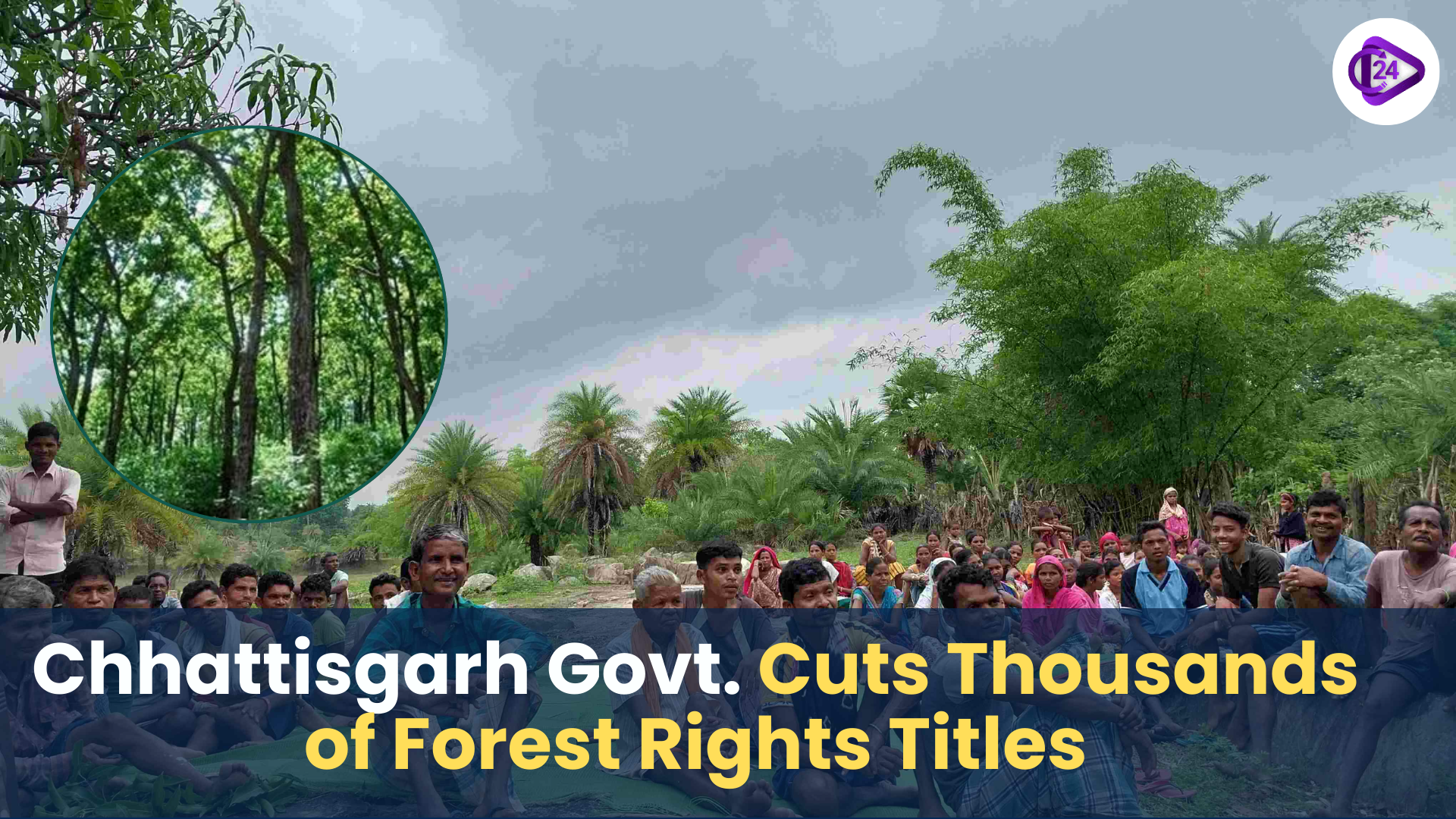 Chhattisgarh Govt. Cuts Thousands of Forest Rights Titles
Chhattisgarh Govt. Cuts Thousands of Forest Rights Titles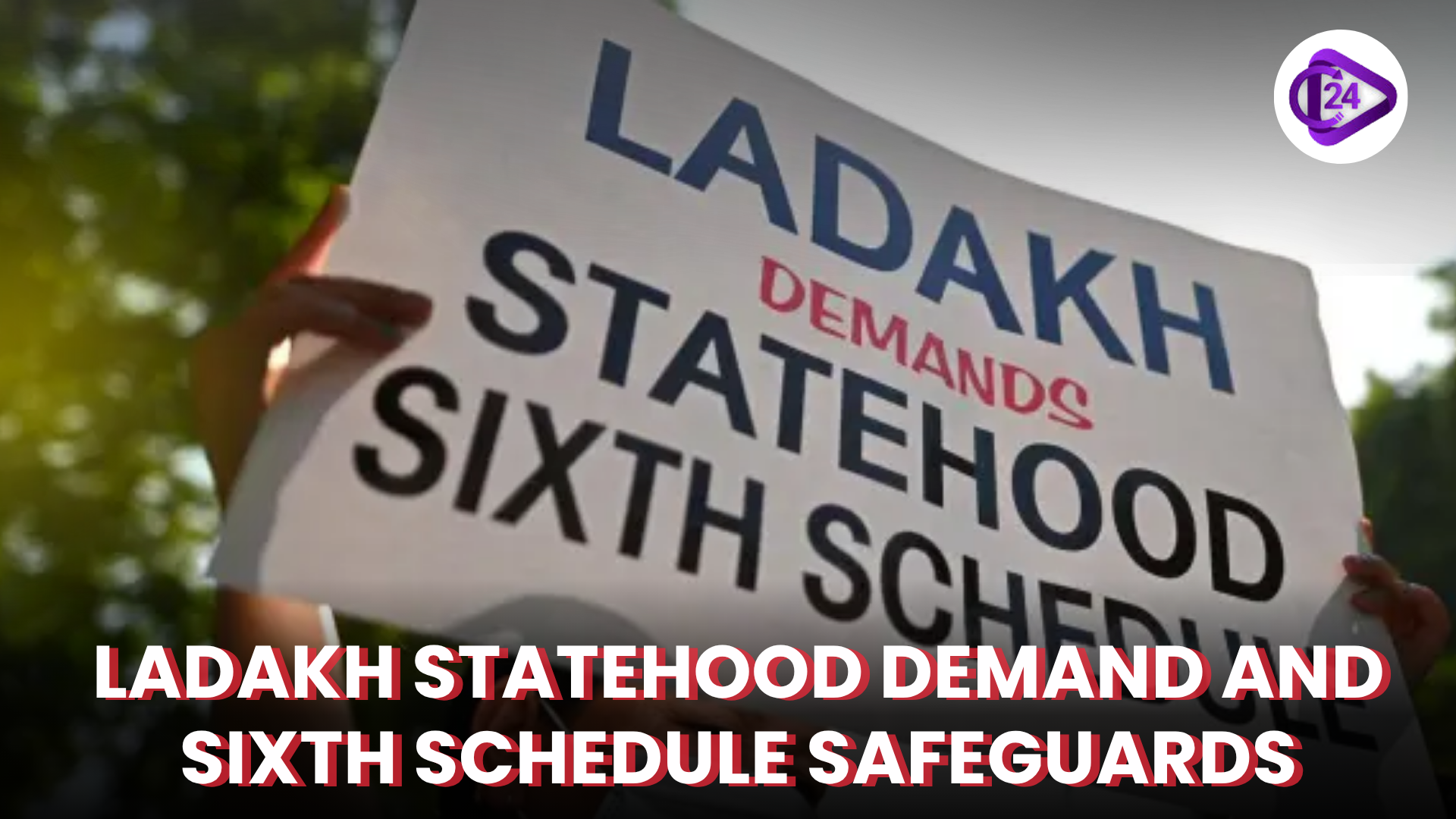 Ladakh Statehood & Sixth Schedule Demand Intensifies
Ladakh Statehood & Sixth Schedule Demand Intensifies






